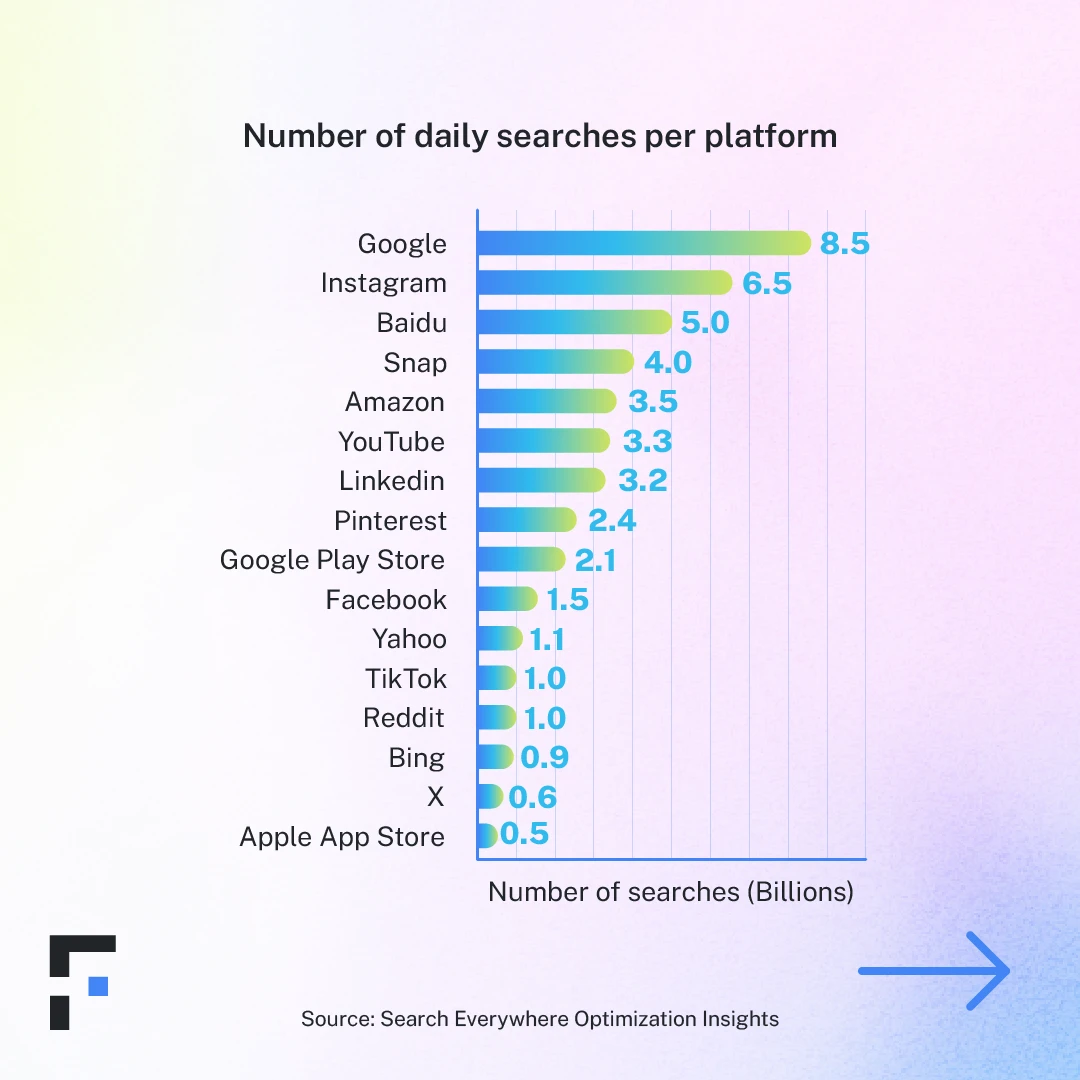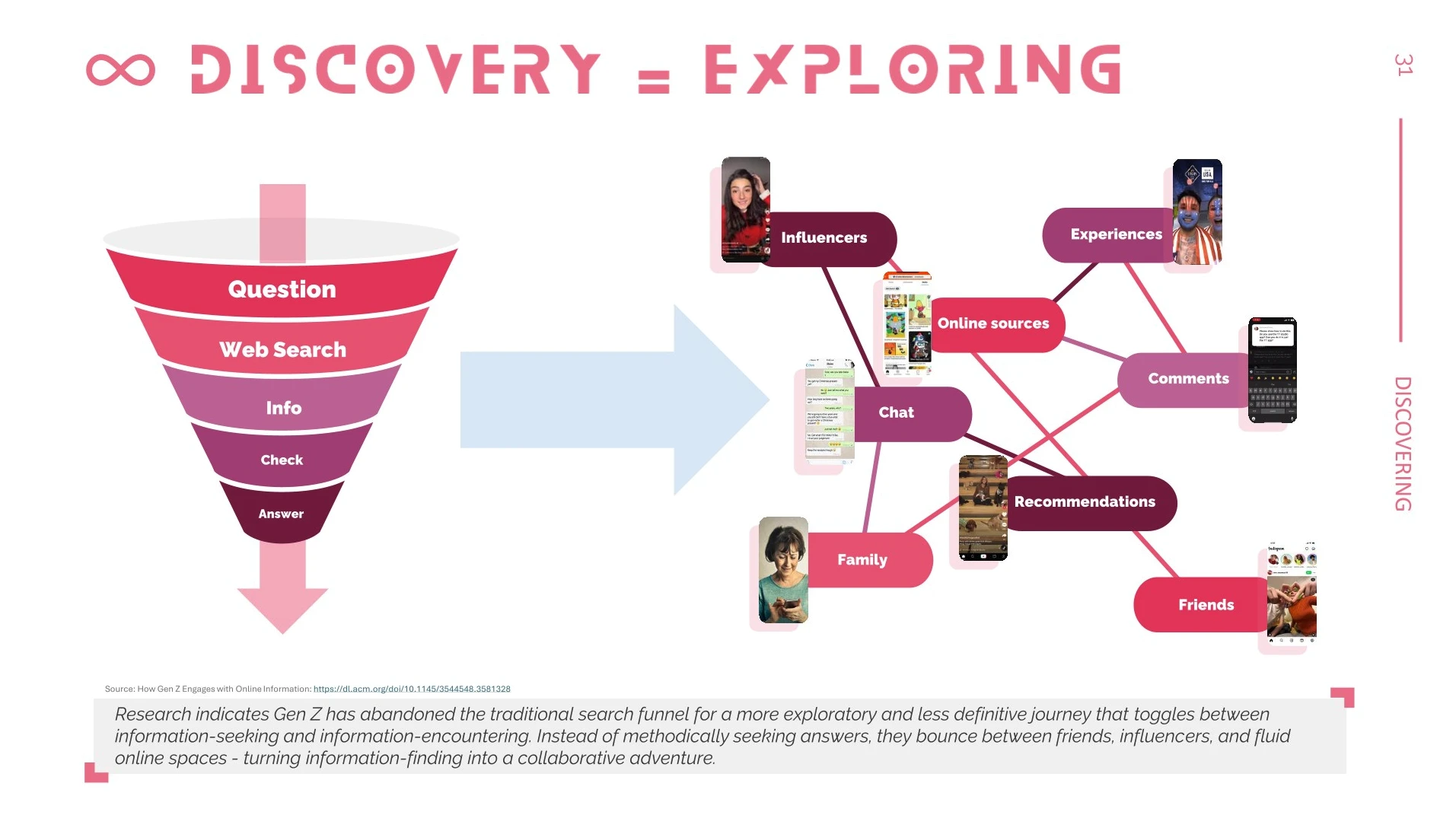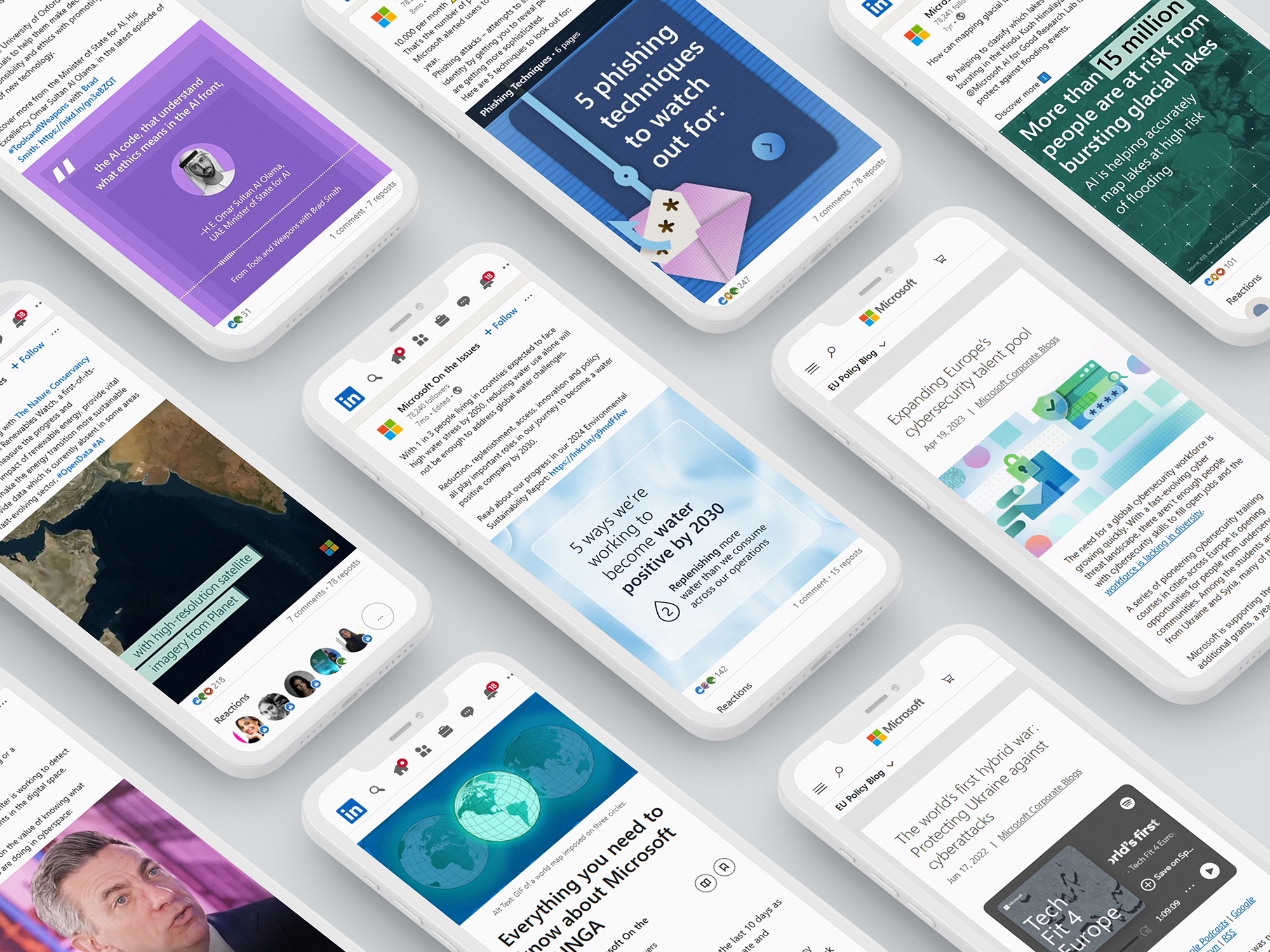Search is undergoing a major transformation.
Traffic patterns are shifting, leading to a substantial dilution in traffic referrals. Nearly three-quarters (74%) of editors, CEOs and digital executives surveyed by Reuters are concerned about a decline in search engine referral traffic this year.
As new platforms and AI-driven search tools rapidly reshape the landscape, digital marketers and content creators must adapt to stay visible and relevant. Here's how we can respond.

But before we go too far, let’s remember that Google continues to deliver the highest traffic levels, and this has remained stable, according to Reuters. Even so, the conventional search funnel is increasingly being replaced with a complex web of sources.
Rather than hitting up a search engine to find information, social media and other online sources have become ‘discovery channels’ where users explore a product before researching it via a traditional search.
Similarly, generative AI platforms and chatbots are being used for simple and complex queries. This can be either before or instead of a traditional web search.
Then there are new features, such as Google’s AI Overviews, which drive users to find answers directly on search results pages – jeopardising referral traffic with ‘zero-click searches’ and challenging traditional SEO strategies.

Source: Wayfinder Trends Report 2025
SEO is becoming Search Everywhere Optimisation
For search practitioners, these trends make it harder to secure and maintain digital visibility. Instead of optimising solely for search engines – mainly Google – brands will need to diversify their strategies to make up for the drop in referrals. It’s no longer just about Search Engine Optimisation; it’s about ‘Search Everywhere Optimisation’ – the latest evolution of SEO.
Many digital marketers are already responding – focusing on direct audience engagement through social channels and community-driven strategies, diversifying content distribution and aligning their content with the needs of generative AI.
How can we adapt our content to this new search universe?
Of course, as we approach the new world of search, there are still many unknowns. But judging by what we have seen so far, here are some approaches likely to succeed.
Understand your audience like never before
Now more than ever, brands need to understand the needs of their audiences, especially what’s driving their searches or explorations. It’s no longer enough to guess what your audience wants; you need to know exactly what sparks their curiosity or leads them to take action.
Focus on long-tail searches
In this landscape, long-tail searches will play a bigger role, helping brands connect with users who have clear transactional or commercial intent – and who won’t be satisfied with a simple AI-generated summary. By tapping into long-tail keywords, you can engage these users with more relevant, targeted content.
Adapt content to user intent
AI platforms thrive on context, which means keyword optimisation alone will no longer suffice. Content must be aligned with user intent, offering deep, insightful and actionable information at every stage of their journey. The days of general, one-size-fits-all content are over – personalisation is key.
Apply the EAAT principle
Building on this, following the EAAT principle (experience, expertise, authoritativeness, trustworthiness) pioneered by Google will help raise the credibility and citeability of your content.
-
Experience: Show real-life application of your knowledge.
-
Expertise: Demonstrate credentials, qualifications, and in-depth understanding.
-
Authoritativeness: Cite reputable sources and work with trusted voices.
-
Trustworthiness: Be transparent and reliable in everything you do.
By focusing on these elements, you’ll not only improve your content’s visibility but also position your brand as a trusted thought leader.
Embrace originality
With an increasing wave of AI-generated content regurgitating existing information, originality becomes a game-changer. Brands that stand out will offer unique content – from proprietary data to personal anecdotes, and fresh insights into emerging trends.
Diversify content formats
To truly set your brand apart, diversify the types of content you use on your website. Videos, interactive content, infographics, and other structured formats not only engage users but are also more likely to boost the citeability of your content, improving its authority in the digital space.
Evolution, not revolution
While this new search universe can seem overwhelming, it’s important to remember that search and SEO have never really stood still. Many of the trends we're seeing today aren’t exactly new – they've been gradually creeping up on us for some time. By laying solid foundations with their content strategies, digital marketers will be well-positioned to adapt and evolve their search approaches flexibly and proactively.
Want to learn more about the shift in search and its impact on content?
If you’d like help navigating these changes, we offer a bespoke search training session that breaks down what can feel like a lot into an easy-to-digest workshop, keeping you at the forefront of this evolving landscape. Reach out to us at hello@formative.agency.
Author: Andrea Willige

